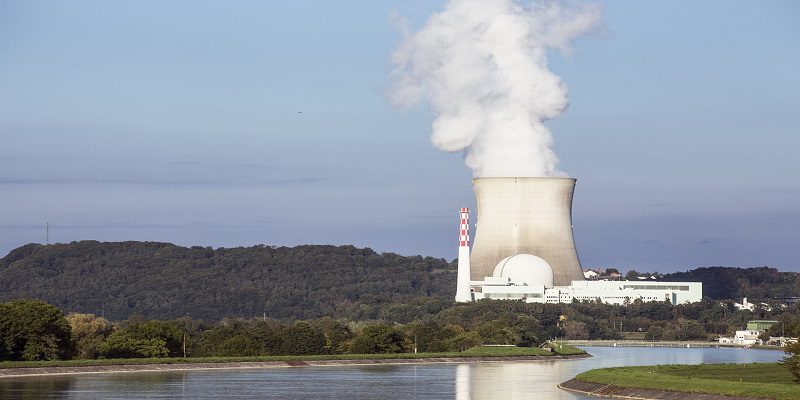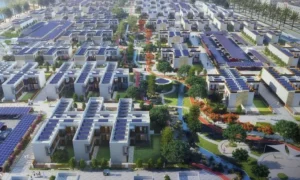In the pursuit of a sustainable future, the energy landscape is undergoing a profound transformation. As we grapple with the urgent need to reduce carbon emissions and mitigate the impacts of climate change, the role of nuclear power is gaining renewed attention. Beyond fossil fuels, nuclear energy stands as a potential game-changer in our quest for a cleaner, more sustainable world. This blog post explores the various aspects of nuclear power and its implications for a sustainable future.
The Need for Sustainable Energy
The current global energy scenario is dominated by fossil fuels, which not only contribute significantly to greenhouse gas emissions but are also finite resources. As the world population grows and energy demand rises, the imperative to shift towards sustainable and low-carbon energy sources becomes increasingly urgent. Nuclear power, with its ability to produce large amounts of electricity with minimal carbon emissions, emerges as a compelling alternative.
Carbon-Free Energy Production
One of the key advantages of nuclear power is its capacity to generate electricity without emitting greenhouse gases. Unlike traditional fossil fuels, nuclear energy does not rely on the combustion of carbon-based materials. The process involves nuclear fission, where the nucleus of an atom splits, releasing a tremendous amount of energy. This characteristic makes nuclear power a vital component in the transition to a carbon-neutral energy sector.
High Energy Density
Nuclear power boasts an unparalleled energy density, meaning that a small amount of nuclear fuel can produce a significant amount of energy. This efficiency is crucial for meeting the growing energy demands of a global population while minimizing the environmental impact. Compared to renewable energy sources like solar or wind, nuclear power plants require less physical space to generate equivalent amounts of electricity, making them a viable option for densely populated areas.
Base Load Power Generation
Unlike some renewable sources that are intermittent, such as solar and wind, nuclear power provides a stable and consistent source of electricity. Nuclear plants operate continuously, offering a reliable base load power supply that complements the variability of renewable energy. This reliability is essential for maintaining a stable power grid and ensuring uninterrupted energy supply, especially during periods of high demand.
Challenges and Concerns
While nuclear power presents a promising solution to our energy challenges, it is not without its controversies and concerns. Addressing these issues is crucial to realizing the full potential of nuclear energy in the pursuit of sustainability.
Nuclear Safety
Safety concerns surrounding nuclear power often center on the potential for accidents and the release of radioactive materials. High-profile incidents, such as Chernobyl and Fukushima, have heightened public apprehension. However, advancements in technology, stricter safety regulations, and improved reactor designs contribute to enhancing nuclear safety.
Nuclear Waste Management
The issue of nuclear waste disposal remains a significant challenge. Radioactive waste generated by nuclear power plants requires secure, long-term storage solutions. Ongoing research into advanced waste management technologies, such as deep geological repositories, is critical to addressing this concern and minimizing the environmental impact of nuclear waste.
Proliferation Risks
The proliferation of nuclear weapons is a serious concern associated with the expansion of nuclear power. The dual-use nature of some nuclear technologies raises apprehensions about the potential misuse of nuclear materials for weapons purposes. Stringent international safeguards and non-proliferation agreements are essential to mitigate these risks.
Innovations in Nuclear Technology
To overcome the challenges associated with nuclear power and maximize its potential in a sustainable future, ongoing research and innovation are paramount.
Advanced Reactor Designs
Innovative reactor designs, such as small modular reactors (SMRs) and Generation IV reactors, aim to address safety concerns, reduce construction costs, and enhance overall efficiency. SMRs, in particular, offer scalability and flexibility, making them suitable for a variety of applications, including remote regions and industrial settings.
Nuclear Fusion
Nuclear fusion, often hailed as the “holy grail” of clean energy, holds the promise of virtually limitless, safe, and carbon-free power. While significant technical challenges remain, ongoing research and international collaborations, such as the ITER project, are advancing the feasibility of commercial fusion power.
Policy and Public Perception
The successful integration of nuclear power into a sustainable energy future requires not only technological advancements but also supportive policies and public acceptance.
Policy Support
Governments play a pivotal role in shaping the energy landscape. Comprehensive policies that incentivize the development and deployment of nuclear technologies, coupled with a commitment to stringent safety and environmental standards, can create an environment conducive to the growth of nuclear power.
Public Engagement and Education
Public perception of nuclear power often influences policy decisions. Effective communication and public engagement campaigns are crucial for dispelling myths, addressing concerns, and fostering an understanding of the benefits and risks associated with nuclear energy. Education about the advancements in nuclear technology and the role it can play in combating climate change is essential for building public support.
Conclusion
Beyond fossil fuels, nuclear power presents a compelling solution to the pressing challenges of climate change and a sustainable future. While concerns and challenges exist, ongoing research, technological innovation, and informed policymaking can help unlock the full potential of nuclear energy. As we strive for a cleaner and more sustainable future, the inclusion of nuclear power in the energy mix deserves careful consideration, offering a path towards a low-carbon, reliable, and efficient energy landscape.



































